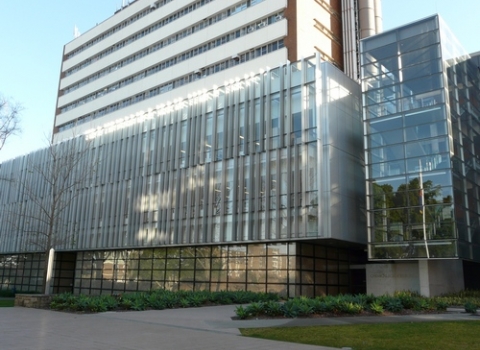About CMST
The Centre has five academic and over 20 researchers dedicated to membrane science and technology. The Centre has a strong profile and recognition factor internationally as one of the largest membrane groups and as a world leader in a wide range of research areas.
Much of the Centre’s reputation rests on our approach to wider generic problems from a fundamental engineering science approach incorporating skills from physical chemistry to high level computing, rather than solely from an application focus. Historically, it has been a University Centre for over 20 years and was previously supported as Commonwealth Special Research Centre for 9 years.
Recently, the Centre has leveraged its collective infrastructure and expertise to form collaborative links with other Centres and schools and participate in major research initiatives nationally and internationally. These include a major CSIRO cluster in water, 3 DEST International Linkage Programmes, and three Cooperative Research Centres. This has brought significant research income and profile to UNSW in addition to our continuing success with traditional sources of funding from the Australian Research Council and industry. Due to the increasing role of membranes in the global issues such water, energy, and climate change, the Centre is in a position to take a research leadership role in many of these key technology challenges.
Research Objectives
A balance is maintained between the fundamental research and more applied studies. The former are principally funded through Australian Research Council (ARC) grants. The latter are largely funded by other agencies such as Cooperative Research Centres (CRC) and industry.
The research objectives of the Commonwealth Special Research Centre include:
- Physico-chemical characterisation of the structure, properties and transport mechanisms in synthetic membranes.
- Development of sustainable membrane processes for environmental and industrial applications
- Development of improved engineering aspects of membrane module design, operation and process control.
- Development of novel membranes and membrane processes.
- Development of methods to overcome or control the deposition and attachment of solutes and biofilms (fouling) during separation processes.
- Development of instruments and procedures for the characterisation of membranes, in particular for monitoring and control membranes during process operation.

